
Celiac disease is a lifelong autoimmune disease that can only be managed by a strict gluten-free diet. In this article, I share ten lessons I learned in the years following my celiac disease diagnosis. This post contains affiliate links. Please see my disclosures.
It was April 2012. I sat in my car at the airport parking lot, waiting to pick up my parents from their latest trip. I brought with me my lunch—a six-inch roasted chicken sub sandwich from Subway and a Diet Coke. I planned to eat it while I waited for my parents’ plane to arrive.
As I began eating my sandwich, my cell phone buzzed. It was my doctor. I’d been expecting her call because she had run some “tests” on me earlier in the week after I complained about my painful bloating and constant gas.
My doctor warmly greeted me and told me she had some results she wanted to go over with me; most importantly, telling me four words that changed the entire trajectory of my life: “You have celiac disease.”
She explained that having celiac disease meant I couldn’t eat anything with gluten, which she said was primarily found in foods like bread, pasta, and pizza.
I was stunned into silence. Celiac disease hadn’t even crossed my mind.
I held back tears and thanked my doctor for her call. I then tossed my sandwich aside and began my lifelong gluten-free journey, which not only found me changing how I eat but also how I think and approach life.
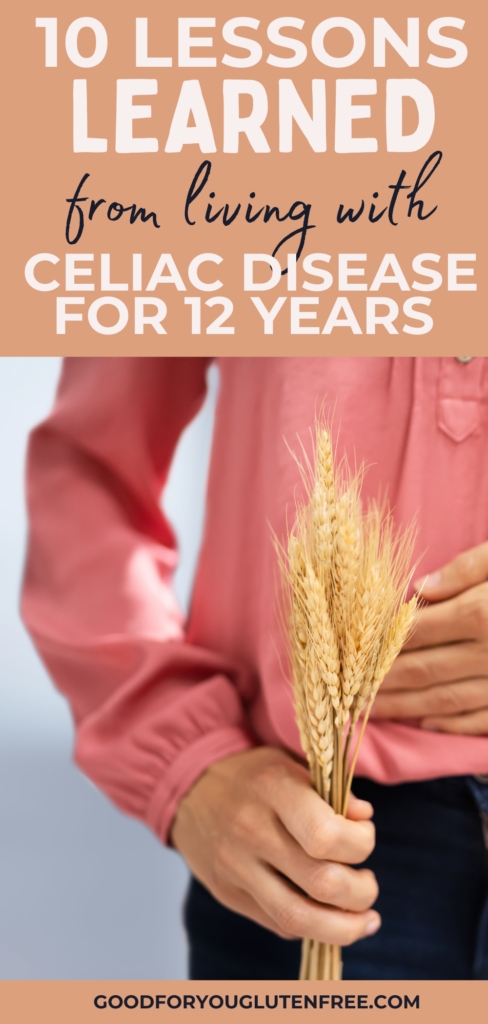
Celiac Disease Changes You
When I think back to that fateful day, I could have never predicted how much celiac disease would change my life. But it has in some good and some not-so-good-yet-challenging ways.
Celiac disease is an autoimmune disease in which the body’s immune system becomes confused and mistakingly attacks the healthy tissue surrounding the small intestine every time someone with the disorder eats gluten. Gluten is a protein found in wheat, rye, barley, and derivatives of these grains. Due to cross-contamination, gluten can also be present in oats.
Over time, the small intestine becomes worn down and damaged, leading to many symptoms, including nutritional deficiencies, skin disorders, growth issues, brain disorders, and classical gastrointestinal disorders like bloating, gas, and diarrhea. If not managed properly, it can also lead to devastating conditions like cancer and other autoimmune diseases.
Most people don’t realize that the small intestine fuels every cell and organ in the body. When it’s not working correctly, the malnourished body begins to break down slowly but surely.
10 Lessons Learned From Celiac Disease
Today, after 12 years of living with celiac disease, I’m happy to report that I’ve put my painful symptoms behind me. I’m stronger, wiser, and healthier than I’ve ever been in my entire life. I believe celiac disease saved my life.
While I’ve put my celiac disease into remission and live a symptom-free life, I still live with the daily struggles and burdens that come with following a strict gluten-free diet.
The struggle is real, although I’m grateful for the disease because it has taught me so much about myself, what it means to be healthy, and life in general.
Today, I share these 10 lessons as a source of strength for you as you travel through your own sometimes rewarding and sometimes difficult gluten-free journey.
Lesson #1: We Can Do Hard Things
In her best-selling memoir Untamed, Glennon Doyle writes that people can do hard things. After getting diagnosed with celiac disease and upending my entire life, I’m proof that humans can do hard things.
While implementing a strict gluten-free diet is the only way to control celiac disease and manage the damaging and annoying symptoms, it’s no easy feat.
Most people in the gluten-free community would agree that the gluten-free lifestyle is overwhelming and hard, especially given that gluten is hidden in many surprise foods.
On top of that, gluten-free labeling laws are confusing and ever-changing, cross-contamination lurks everywhere, making it difficult to eat out and travel, and you have to figure out an entirely new way of cooking and baking that sometimes feels more like a science experiment and less like a leisurely day of baking cookies.
A gluten-free diet can suck the fun out of special events like weddings and holidays, especially when you have to worry about finding safe food vs. enjoying the day. And above all else, it can sometimes challenge one’s mental health and physical grit.
That said, I’ve learned that I can still live a full life with celiac disease, even though it’s difficult at times. It has made me physically and mentally stronger and more resilient than ever. And I’m okay with packing a lunch wherever I go. It’s par for the course, and I always have the most beautiful lunch because I’m forced to think beyond sandwiches.
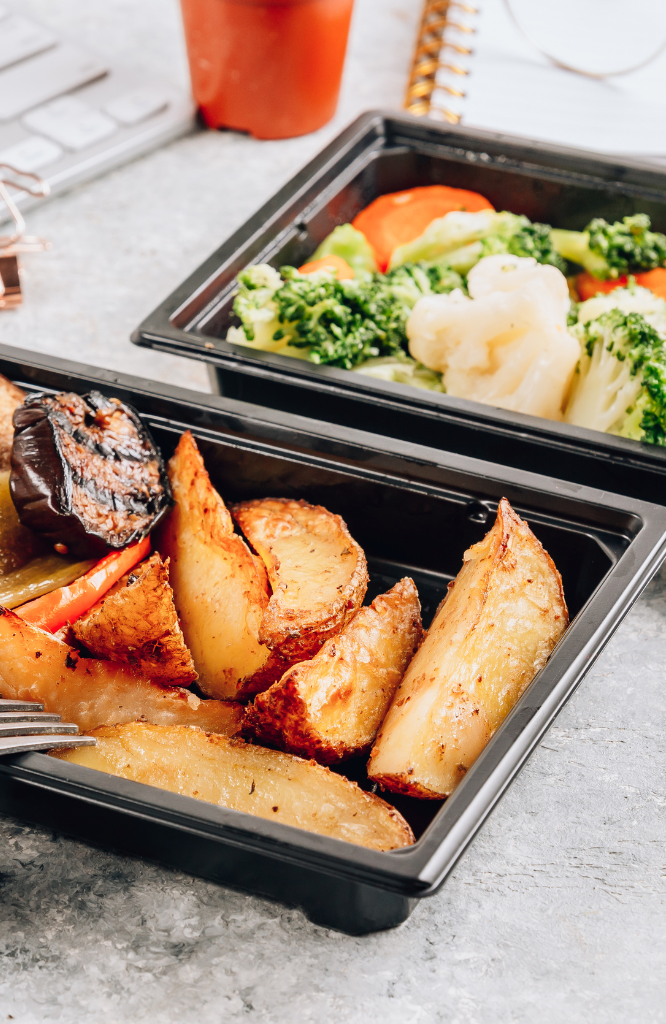
Lesson #2: We Must Slow Down
Life can be incredibly hectic, and the rat race is neverending. However, celiac disease has forced me to slow down and properly care for myself in ways I’ve never had to do before.
In fact, celiac disease has taught me how to cook fresh, naturally gluten-free meals for myself and my family. Instead of ordering sesame chicken at a restaurant (a favorite!), I make it at home using clean and gluten-free ingredients.
I also learned that I’m not as portable—or flexible—as I used to be, and that’s okay. In the past, I could attend an event and eat whatever was prepared. I could travel anywhere and not have to think about my next meal.
While I’m not able to move as fast or be as spontaneous as I used to be in my pre-celiac years, I haven’t let celiac stop me from living my life. I now know I need to be more thoughtful when making plans. I have to pack snacks and research the food situation ahead of time.
The bottom line: Celiac slows me down, but it doesn’t stop me.
Lesson #3: Our Bodies Will Heal If Given the Chance
One of the most profound things I learned through my nutrition training was that the human body knows how to heal when given a chance.
Think about it. If you cut your finger, your body instinctually starts the healing process immediately. Within 24 hours, new skin forms over the cut. Within a week, it looks as good as new.
The same is true about the digestive system. While celiac disease may have “broken” your digestive system, once you stop adding fuel to the fire (aka, gluten) and other damaging foods, it begins to heal. The human body is truly incredible!
Lesson #4: Food is Our Medicine
The great Hippocrates, the father of modern medicine, once said, “Let food be thy medicine,” and he could not have been more right. Food can nourish the body as much as it can harm it.
Unfortunately, there is no cure for celiac disease. No magic pill or procedure will make celiac disease go away.
Once I removed the offending food (gluten) and flooded my body with nutrient-dense foods, my body began to heal. I believe it recovered more quickly because of the good-for-you foods I put in it.
I encourage you to read my article, How I Healed from Celiac Disease Naturally, and my book, Dear Gluten, It’s Not Me, It’s You, to learn how I healed my body and put my celiac disease symptoms into remission.
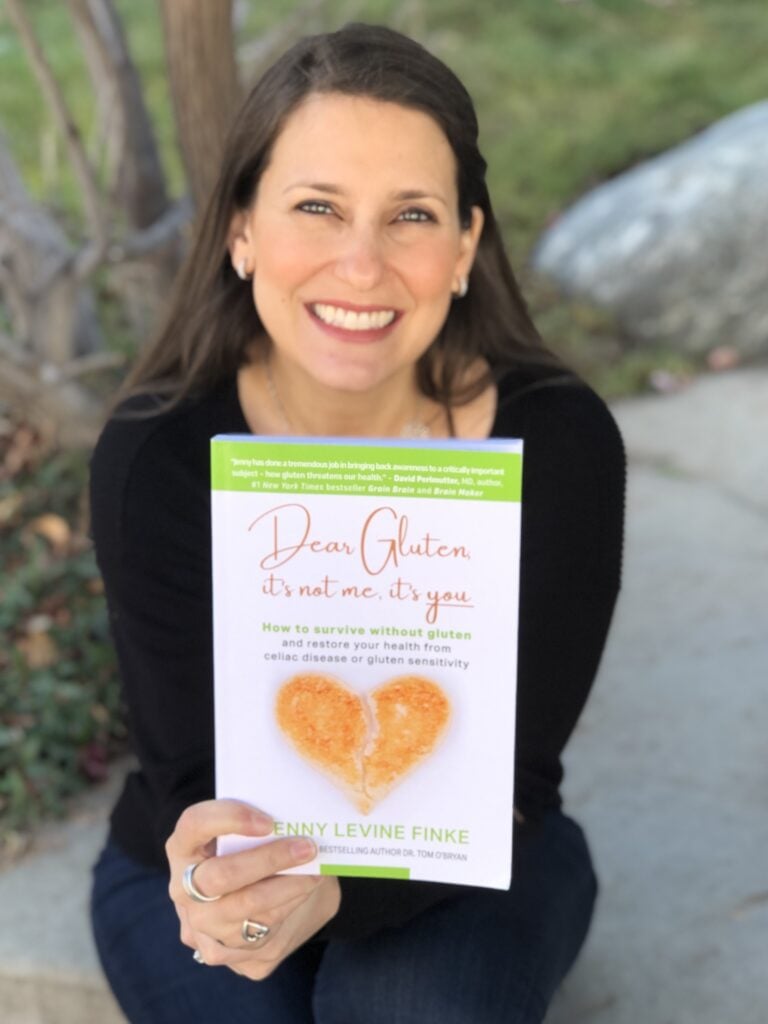
Lesson #5: It’s Okay Not to Be Okay
I’ve learned that feeling sad about having celiac disease is okay. It’s okay to miss gluten. It’s also okay to grieve the loss of an old, carefree life that didn’t require scrutinizing every piece of food before eating it.
I write about the emotional burden of the gluten-free diet in my book because it has weighed heavily on me over the years.
Even after years of dealing with celiac, some moments still make me sad or trigger grief. I have learned to cope and move forward as best as possible, all while recognizing that it’s okay if you’re not always okay.
Lesson 6: We Appreciate Food Differently
It may sound cheesy, but since my celiac disease diagnosis, I’ve learned to enjoy and appreciate food in a new way. I’ve learned how to cook and bake, and I’ve even figured out how to make a sourdough starter and sourdough bread.
I have a next-level appreciation for a good gluten-free pizza crust or gooey gluten-free cinnamon roll, especially since these foods are most difficult to replicate without gluten.
I also love traveling to new places and seeking out gluten-free food. Finding gluten-free restaurants has become a fun part of my family’s travel adventures.
When we found a gluten-free pizza place in Paris, it brought me so much joy. It was the best gluten-free pizza I’d ever had, and I had so much appreciation for a pizza that most people would have taken for granted.
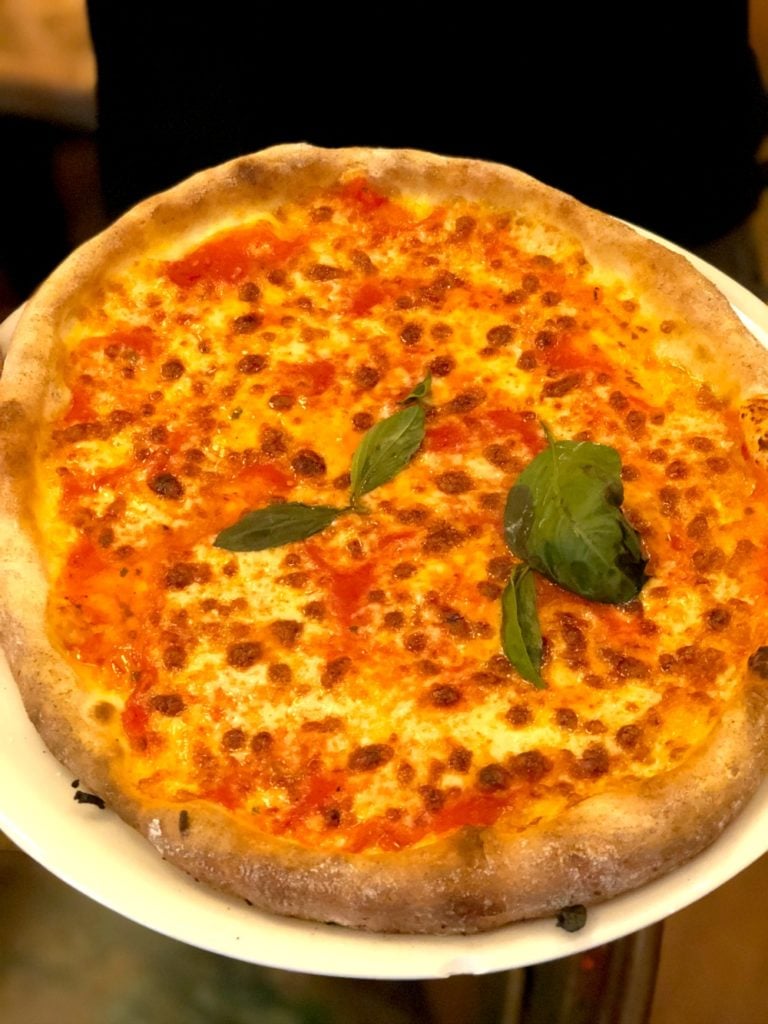
Lesson 7: We Will Make Friends Because We’re GlutenFree
Whenever I meet someone who is gluten-free (like me!), we become instant friends. We love exchanging recipes, having each other over for meals, and trying new foods and restaurants together. I have more friends than ever because I have celiac disease.
Recently, I lunched with two new celiac friends and their gluten-detection dogs. We met on social media and became friends IRL (in real life) because we all had celiac disease. It truly is a bonding experience.
People always want to talk to me about my diet, and they often thank me for helping them navigate this crazy lifestyle. Celiac disease has brought so many new people into my life, and for that, I’m grateful.
Lesson 8: We Must Be Kind to Our Gut
Gut health is so important in people with celiac disease. When someone is new to celiac disease, their small intestine has been severely damaged by gluten. Unfortunately, gut health is fleeting and can change on a dime. It must be constantly monitored and managed.
I take a high-quality probiotic every day, limit my sugar intake, and load up on vegetables at every meal. While I strive to eat healthy foods that are good for my gut, I never deprive myself of dessert (no way!). It’s truly about finding the right balance for your gut.
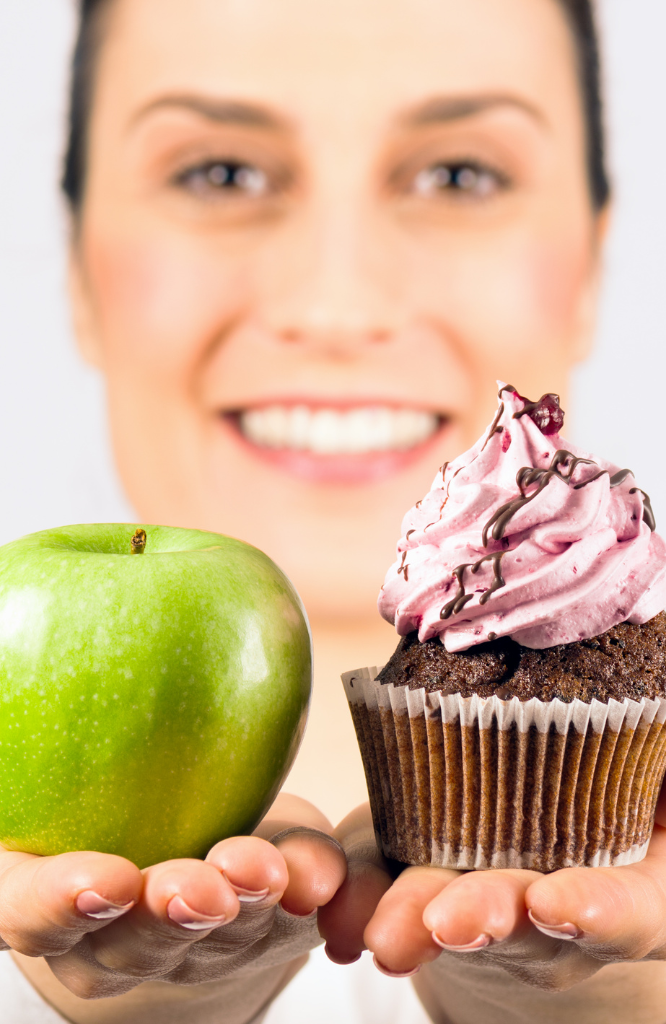
Lesson 9: We Must Surround Ourselves With Positivity
Unfortunately, people aren’t always kind to those with special dietary needs. When I meet someone who pokes fun at my diet or thinks gluten-free is just a fad, I make an effort to avoid them. There are also people within the gluten-free community who are judgmental of others or hypervigilant in their diets to the point they can’t live their lives without fear.
Surrounding yourself with people who love and care for you is crucial. My husband went gluten-free in solidarity with me. My mother-in-law always tries to bake new gluten-free creations. And my friends don’t shy away from hosting me.
I also recommend unfriending negative people, leaving negative celiac and gluten-free groups on Facebook (they are a cesspool of negative and inaccurate information), and saying goodbye to anyone who judges you for eating gluten-free Oreos or Cheerios.
Lesson 10: We Can Live Full and Healthy Lives with Celiac Disease
Going gluten-free seems like a huge mountain to climb, but I assure you, it will get easier with time. I recognize that celiac disease happened for me, not to me.
My diagnosis was like a GPS system. I was off course when it came to my diet, and it rerouted me on the right path towards a long, healthy life by helping me change the food on my plate.
Additional Reading
If you enjoyed this article, you might also enjoy the following articles:
- Can You Be Too Gluten-Free? How to Balance Dietary Vigilance Without Losing Your Mind
- The Emotional Burden of the Gluten-Free Diet
- What Is Celiac Disease?
- Testing for Celiac Disease Without Going to Your Doctor
- 10 Facts Your Doctor Doesn’t Know about Celiac Disease and Gluten Sensitivities
- Is there a Cure for Celiac Disease?
- Is It Gluten-Free? Decoding the 20 Most Confusing Ingredients in Products
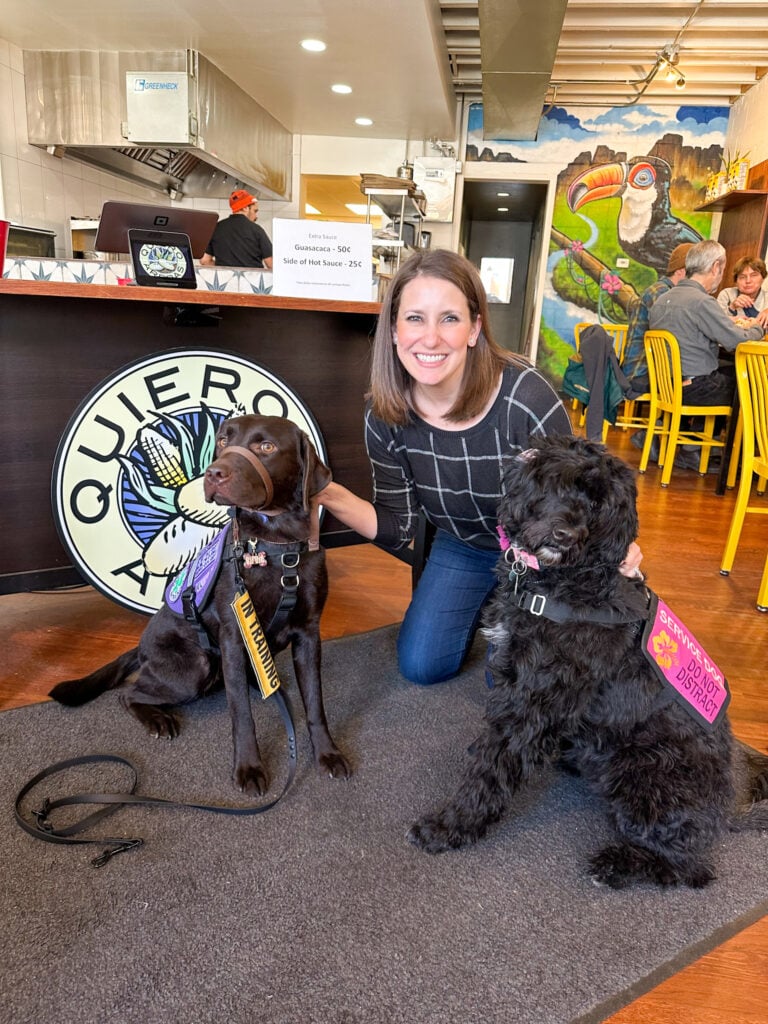
Hi Jenny it’s been almost two year since I was diagnosed with celiac disease. I have no symptoms so on one hand I am very fortunate but it also means if I got glutened I wouldn’t know so I have to be very careful. Your articles have helped me understand all about gluten and reading labels etc. Your correct its not alway easy but I can think of lots of conditions that are much worse. Keep up the good work and thsnk you for all the knowledge that you have passed on to us.
I wish this article was around when I was diagnosed almost 5 years ago. It was a long, hard road to come to peace with this silent disease, but it happens with time. I had ZERO physical symptoms, aside from infertility. My husband and I went gluten free and conceived 5 months later! There were often times where I struggled to see how I could truly have something that never made me ‘feel’ sick, but two babies later the proof is there. I’m now a virtual health coach and eat all naturally gluten free foods. The improvements in my energy levels and overall health are incredible. It will get better. ❤️
I was diagnosed less than two months ago and I’m still feeling really bad both physically and emotionally. The negative seems to outweigh the positive at this point because I still feel really sick most of the time. Thank you for this post (and others) it has really been an extremely helpful place for me since I started following along.
I would also include for me in my experience that going gluten free will be annoying but once your body heals, you will gain some weight and feel better and healthier than ever before! So worth the weight gain. Literally haven’t missed a day of work since I healed 2 years ago!
Thanks you for sharing Mary. I feel exactly the same.
Hi Jenny, I was diagnosed as celiac about 7 years ago. I too was initially overwhelmed and focused on all I was missing. But as I gradually began to feel better and my energy level improved, I began to navigate in a hopeful way . I felt so much better, it was worth it to me to continue my gf diet. I too made the mistake of thinking foods made without gluten were “good” for me and gained weight.But I recently returned from a
9 day cruise in Europe and had no issues maintaining the diet, in fact they went out of their way to be sure I had gf options.
Thank you for your very informative articles.
I love this article. I was recently diagnosed with a non-celiac gluten intolerance and dairy intolerance. Finding things to eat has been a struggle. I have to admit at times I’ve hated this entire process. Thanks for all of the information you provide. You’ve made my transition into my new normal easier!